Last week marked the end of the girls’ adventure in their current math books, which means by my lights, they’re onto the new grade. I use math as our metric because 1) it’s the subject we are most behind in; 2) it’s very sequential, you can’t really skip around or ahead if you’re not getting it; and 3) whether it’s going well or hard, it’s about the same amount of work—it takes about 36 weeks regardless.
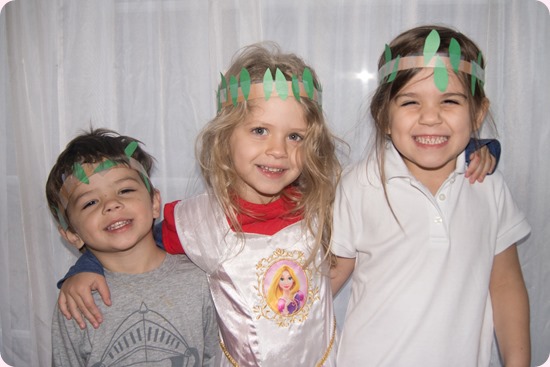
So, it’s a new academic year. It’s also our spring break, which is going to last about three weeks and involve some non-textbook math, a side adventure into a different reading program, a different science program… it’s the season for electives, in other words.
And then we’ll go back to the grind.
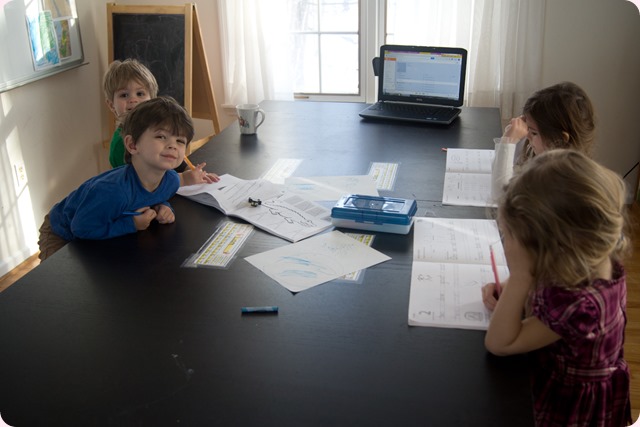
One big decision I made is to go through the curricula as we come to it, rather than adhering to the idea of Fall-to-Spring, and also to not keep the children in sync with each other or even in sync with themselves, subject-wise. While the girls have both finished their current textbooks and are relatively together in scheduling, L is not finished his current course and I am not planning to begin his “new year” until fall, at which point the girls will be half-way through this year. In other words, I am trying not to lose my mind, but also trying to let things progress at a natural pace.
My other big decision was to go year-round, which gives a lot more freedom for longer / more frequent breaks, while providing structure continually, and some extra academic time to pursue electives, fill in gaps, and otherwise go off-script.
2nd grade:
Core curricula: Christian Light Reading 200, Singapore Math, R&S Grammar 2, Sequential Spelling, Tapestry of Grace, Apologia Science, typing
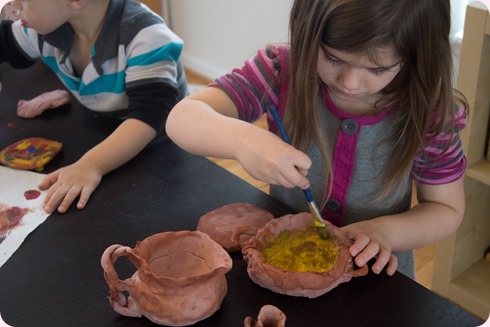 We are about halfway through Christian Light’s Reading 200 program. It’s FANTASTIC. Seriously. I rave. You definitely need a fluent reader, but we’ve got that, and there is everything to love about this program. It’s cheap, has fantastic, deep Christian stories (albeit not Reformed), a great workbook with a good workload and challenging concepts… room for teacher interaction but absolutely not required. Regular quizzes included help me know she’s really getting the concepts.
We are about halfway through Christian Light’s Reading 200 program. It’s FANTASTIC. Seriously. I rave. You definitely need a fluent reader, but we’ve got that, and there is everything to love about this program. It’s cheap, has fantastic, deep Christian stories (albeit not Reformed), a great workbook with a good workload and challenging concepts… room for teacher interaction but absolutely not required. Regular quizzes included help me know she’s really getting the concepts.
Singapore Math is still working wonderfully for us. I will say I decided with five children in the pipeline, that manipulatives might not be such a bad investment, and so I’ve been collecting them over the past year, and they really help make math a lot more fun. I plan to do a post on that. I also really like Math Mammoth and I use it to provide extra practice / extra explanation of difficult concepts, and I can see myself possibly switching to MM entirely once I’m confident I have a good grasp of the path-to-Saxon-54 that I’m doing for the first three grades. Right now I feel like with Singapore, I know we’re on track. But MM is very similar and would be cheaper, once I have more confidence in the subjects and level of mastery expected at each grade level.
Rod & Staff Grammar is also… exciting. It’s a non-consumable textbook, cheap, solid, great mastery/spiral balance. But the best part is they teach kindness and truth as an essential part of grammar. I will say the exercises are a lot of work for someone who doesn’t have a great grasp of handwriting, and so I will sometimes let her do it out loud or a subset of problems. The years after 2nd grade have workbooks, which will make it easier for her.
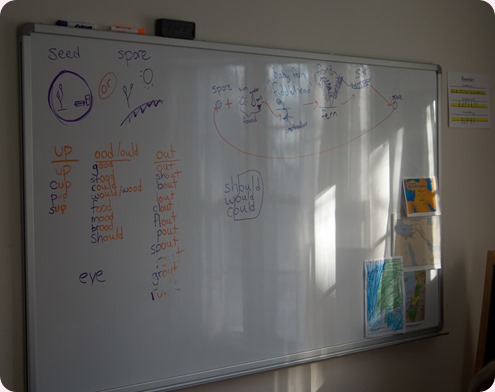 Sequential Spelling is awesome. It would work really well for multiple students, even ones slightly off in grade. We are starting at the beginning, so I can’t speak for starting mid-stream, but I see her spelling improving so much from this program.
Sequential Spelling is awesome. It would work really well for multiple students, even ones slightly off in grade. We are starting at the beginning, so I can’t speak for starting mid-stream, but I see her spelling improving so much from this program.
We are still doing Tapestry of Grace and Apologia Science—I reluctantly ordered the lab kit this next year, because I have trouble handling the prep for the non-core subjects with all the children.
We are also doing typing and math flash cards (via xtramath, which I extremely recommend and is free). Ideally we would finish addition/subtraction in first grade and do multiplication/division facts in second grade, but I found xtramath too late for that to be true this year.
1st grade:
Core curricula: phonics (variety; Christian Light), Singapore Math 1A/1B, Tapestry of Grace, Apologia Science, Headsprout
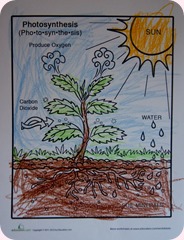 I honestly feel like I’m still feeling out the best path to reading fluently. I am a big fan of Headsprout. So much of reading seems like a developmental thing more so than a taught thing. I’ve talked a lot previously about the different things we do, so I’m not going to rehash them. I will say I’m doing things a bit different in K now, and hoping that will lead to a more well-defined 1st grade
I honestly feel like I’m still feeling out the best path to reading fluently. I am a big fan of Headsprout. So much of reading seems like a developmental thing more so than a taught thing. I’ve talked a lot previously about the different things we do, so I’m not going to rehash them. I will say I’m doing things a bit different in K now, and hoping that will lead to a more well-defined 1st grade 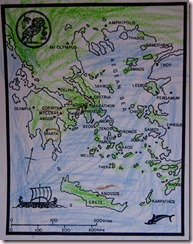 reading program with child 3. That said, I am currently giving a good shot with Christian Light Reading 100 in addition to my regular mish-mash and I am hopeful that that will be a good track for us. The thing I really like about it (besides the fact that I like the 2nd grade curriculum) is that the workbooks only cover a couple of weeks so it is easy to do just part of the curriculum and only buy for the next child what you actually need, instead of having to buy a whole new workbook. CLE is also extremely affordable.
reading program with child 3. That said, I am currently giving a good shot with Christian Light Reading 100 in addition to my regular mish-mash and I am hopeful that that will be a good track for us. The thing I really like about it (besides the fact that I like the 2nd grade curriculum) is that the workbooks only cover a couple of weeks so it is easy to do just part of the curriculum and only buy for the next child what you actually need, instead of having to buy a whole new workbook. CLE is also extremely affordable.
Singapore Math 1A/1B – this program is challenging, numbers to 100, double-digit addition and subtraction, multiplication, division, fractions, money, time, measurement… it’s work. :) It also seems to work, though!
Grammar and Spelling we follow along with older sibling. Same with science and history.
Xtramath – addition and subtraction flashcards.
Kindergarten:
Core curricula: Christian Light Kindergarten II, Singapore Essential Math A&B, Handwriting Without Tears, Reading Eggs
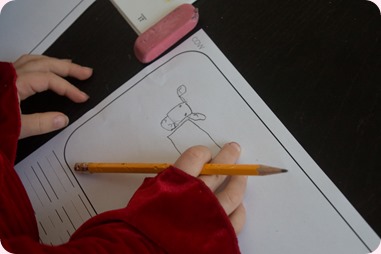 Child 3 has been doing a much more carefully-defined preschool program than his sisters, and so I’m intending to transition him into Christian Light’s Kindergarten II program (and Singapore Math’s Kindergarten Essential Math, which is on track) in the fall. Then that program transitions into a learning-to-read program which eventually transitions into the Reading program that I like so much. I’m not sure how all that is going to go, but I’m beginning to feel like I’m getting it. :) At this point I have a good grasp of what needs to happen in kindergarten, I’m just still working out the best way to get there while managing older children and preschoolers at the same time.
Child 3 has been doing a much more carefully-defined preschool program than his sisters, and so I’m intending to transition him into Christian Light’s Kindergarten II program (and Singapore Math’s Kindergarten Essential Math, which is on track) in the fall. Then that program transitions into a learning-to-read program which eventually transitions into the Reading program that I like so much. I’m not sure how all that is going to go, but I’m beginning to feel like I’m getting it. :) At this point I have a good grasp of what needs to happen in kindergarten, I’m just still working out the best way to get there while managing older children and preschoolers at the same time.
Pre-K:
Core curricula: R&S ABCDEF series, Handwriting Without Tears, Starfall, Before the Code
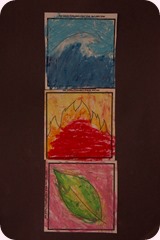 (This is where child 3 still is until Fall or so.) We have transitioned into separate math (Rod and Staff) and English (Before the Code) books, which I feel is good, challenging prep for Kindergarten. He also does handwriting (Handwriting Without Tears). Right now I am loving this spot as a transition out of “preschool” and into something that’s really directionally preparing for Kindergarten proper. We seem to spend about six months in pre-K. It really is a transition to full, proper school. Assignments are still really short (maybe 30 minutes total per day) but there’s the expectation there. It also begins to build on itself rather than just meeting the child where they’re at, to begin sequential knowledge for the first time and increase skills.
(This is where child 3 still is until Fall or so.) We have transitioned into separate math (Rod and Staff) and English (Before the Code) books, which I feel is good, challenging prep for Kindergarten. He also does handwriting (Handwriting Without Tears). Right now I am loving this spot as a transition out of “preschool” and into something that’s really directionally preparing for Kindergarten proper. We seem to spend about six months in pre-K. It really is a transition to full, proper school. Assignments are still really short (maybe 30 minutes total per day) but there’s the expectation there. It also begins to build on itself rather than just meeting the child where they’re at, to begin sequential knowledge for the first time and increase skills.
Preschool:
Core curricula: R&S “About Three” preschool series, Horizons Preschool for Threes, Horizons Preschool
Child 4 is just beginning on this stage. I feel like I have a good system here. There are kind of three sub-levels I set in my head:
- We begin with Rod & Staff’s “About Three” books (learning tracing skills, to sit still, to match, etc.)
- Then move into Horizon’s “Preschool for 3s” (learning colors, to follow directions, to count)
- And finally Horizon’s “Preschool” book (which is essentially Pre-4 or so)
Horizon’s Preschool book is about on level with the Rod and Staff ABCDEF series which I use in Pre-K, but much more colorful and fun / less work / less prep, as well as having a large mixture of subjects in one book. We seem to spend about a year and a half in preschool. At first it’s very spotty and student-directed and by the end it’s an expectation and regular, if still very short, assignments.
Also important to note that this stage is not about finishing books. Most of these books you can start in the middle and so I just pass them on child to child and buy new ones when the old ones are full, not finished by one child. I move them along according to their stage, not based on completion.

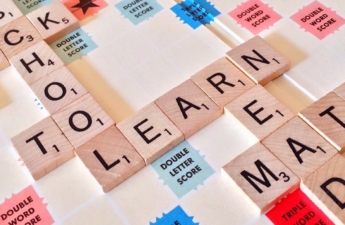
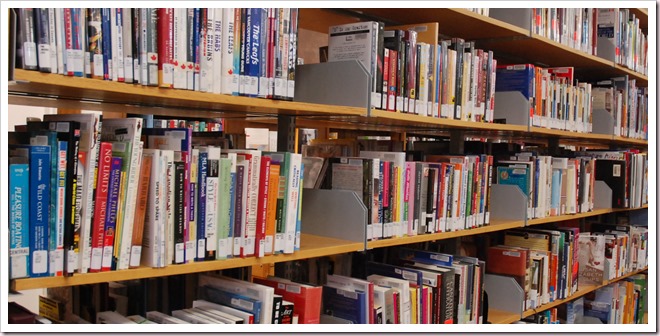
1 thought on “New year, except not. :)”